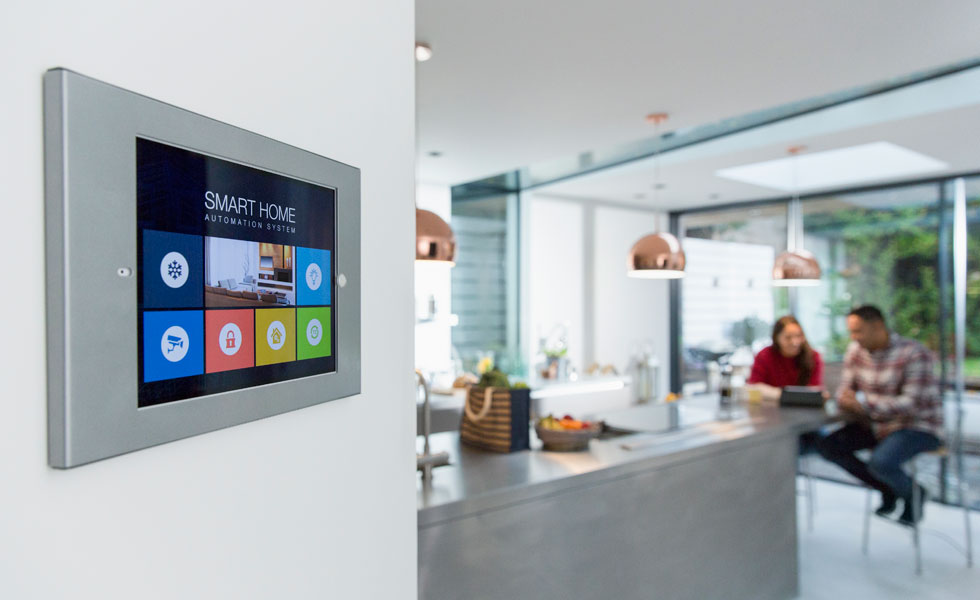The concept of voice controlled homes of the future isn't just a fantasy reserved for science fiction anymore. In fact, it's rapidly becoming a reality that's reshaping the way we live, work, and interact with our environments. For both homeowners and businesses, the potential is vast and transformative.
Imagine a home where your voice is the key to unlocking a world of convenience and efficiency. As technology continues to evolve, voice-controlled systems are being integrated into our daily lives, offering unprecedented control and customization. From adjusting lighting and temperature to enhancing security and entertainment, the possibilities are endless.

The Rise of Voice-Controlled Technology
The rise of voice-controlled technology has been swift and significant. Devices like Amazon's Alexa, Google Assistant, and Apple's Siri have paved the way for a new era of interaction. These systems are not only becoming more sophisticated but also more intuitive, understanding natural language and responding to complex commands.
This advancement is not just about convenience. It's about creating a more connected and efficient environment. For homeowners, this means the ability to manage their homes seamlessly, while businesses can optimize operations and enhance customer experiences.
How Voice Control Enhances Home Automation
Home automation has been a growing trend, and voice control is taking it to the next level. Imagine walking into your home and simply saying, 'Turn on the lights,' or 'Start my favorite playlist.' Voice control allows for hands-free management of various systems, making life more convenient and enjoyable.
For businesses, the implications are equally exciting. Consider a smart office where employees can control presentations, manage schedules, and even adjust the office environment with simple voice commands. This level of automation can lead to increased productivity and a more dynamic work environment.
Challenges and Considerations
While the benefits are clear, there are also challenges to consider. Privacy and security are paramount concerns. As voice-controlled systems become more integrated into our lives, ensuring that these systems are secure and that personal data is protected is essential.
Another consideration is the integration of different systems. Many homes and businesses use a variety of devices from different manufacturers. Ensuring compatibility and seamless integration can be a challenge but is crucial for maximizing the potential of voice-controlled environments.
The Future of Smart Homes
The future of smart homes is bright, with continuous advancements on the horizon. As technology evolves, we can expect even more sophisticated systems that anticipate our needs and respond intuitively. From energy management to personalized entertainment, the future is exciting and full of potential.
Furthermore, the integration of artificial intelligence (AI) is set to revolutionize how we interact with our homes. AI can learn from our habits and preferences, providing a truly personalized experience. For a deeper dive into this topic, check out AI Predicting Homeowner Needs.
Getting Started with Voice-Controlled Homes
If you're considering transitioning to a voice-controlled home, there are several steps to take. Begin by researching the various systems available and determine which one aligns with your needs and preferences. Consider consulting resources like GearBrain's Smart Home Guide to understand the ecosystem setup process.
Next, think about the specific functions you want to control. Whether it's lighting, security, or entertainment, having a clear plan will help you make informed decisions. For those new to smart home technology, Eufy's Smart Home Guide is an excellent starting point.
Integrating Voice Control with Existing Systems
For many, the challenge lies in integrating voice control with existing systems. It's essential to ensure compatibility and seamless interaction between devices. For detailed insights, explore Homes Without Switches for a thorough explanation.
Additionally, consider the potential for future expansion. As technology evolves, having a flexible and adaptable system will ensure that your smart home or business remains cutting-edge and efficient.
Conclusion
The advent of voice controlled homes of the future is not just a trendit's a revolution in the way we interact with our surroundings. For homeowners and businesses alike, embracing this technology can lead to a more connected, efficient, and enjoyable environment.
As we look to the future, the integration of voice control with artificial intelligence, enhanced security measures, and seamless system compatibility will continue to shape the landscape of smart homes and businesses.

FAQs
What are the main benefits of voice-controlled homes?
Voice-controlled homes offer convenience, efficiency, and customization. They allow for hands-free management of various functions, enhancing the living experience.
How can businesses benefit from voice-controlled technology?
Businesses can optimize operations, enhance customer experiences, and increase productivity through voice-controlled systems. They enable seamless interaction and automation, leading to a more dynamic work environment.
What should I consider when integrating voice control into my home?
Consider the compatibility of existing systems, the specific functions you want to control, and potential future expansions. Ensuring security and data privacy is also crucial.

